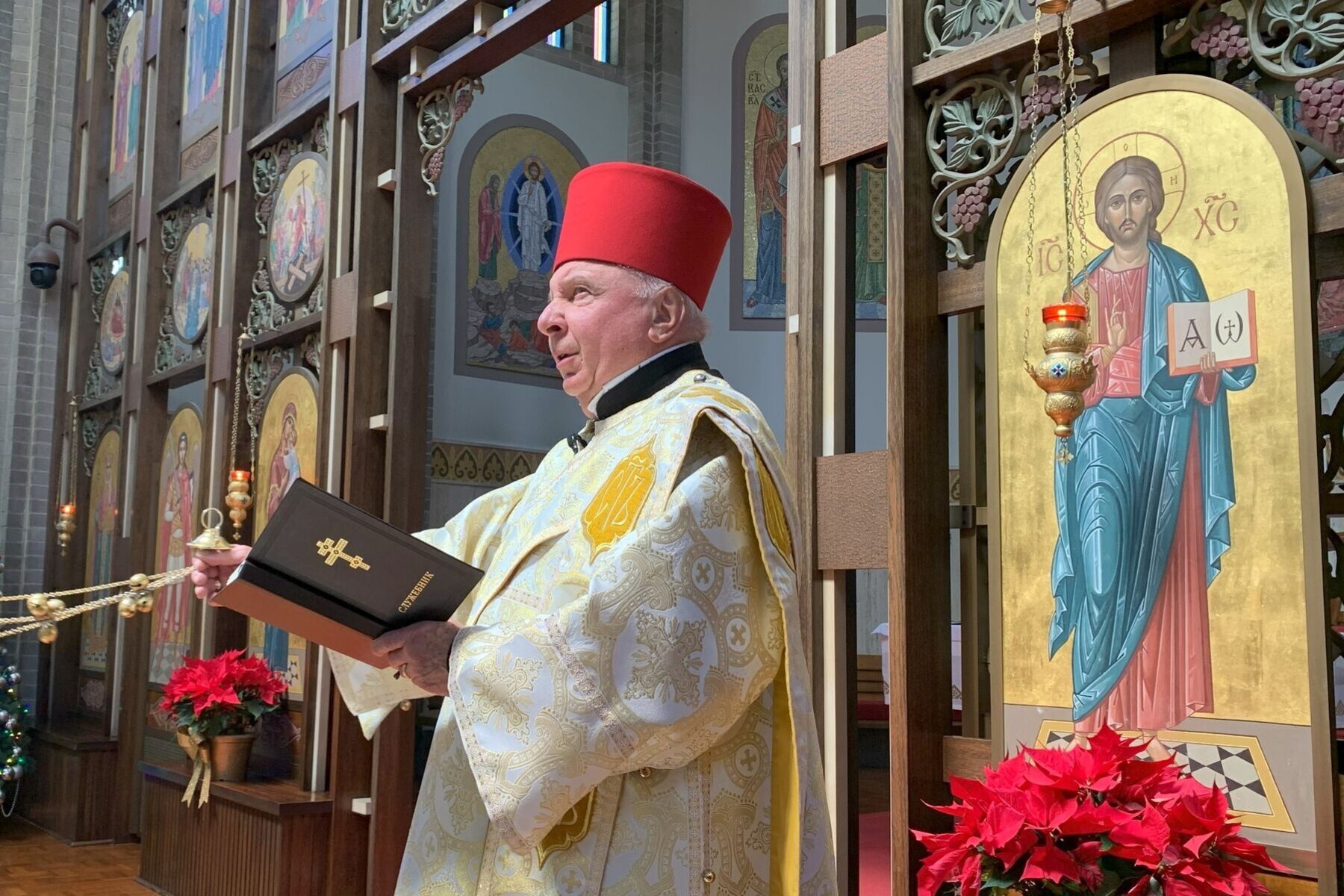Homily by Protodeacon Edward Kostraby on the Sixteenth Sunday after Pentecost
September 27, 2025
True “pilgrims of hope” are not trapped by fear. They trust in the Master, take risks when needed, and place their gifts in service of God’s kingdom. The parable makes clear that God does not demand perfection or extraordinary accomplishments. Rather, He looks for faithfulness, willingness, and courage.

We are now in the final months of the 2025 Jubilee Year proclaimed by Pope Francis, with its theme “Pilgrims of Hope.” This theme calls us to bring hope to everyone we encounter, especially the excluded and marginalized—just as Jesus did throughout his ministry, as witnessed in the New Testament.
Today’s Gospel from Matthew, the Parable of the Talents, reminds us that we are entrusted with gifts and resources not simply for our own benefit, but for service to others. Jesus challenges us to use these God-given talents with courage and faith, extending the kingdom through generosity and love. In doing so, we live as “good and faithful servants,” sharing in the master’s joy. This message highlights the Church’s invitation to journey together as pilgrims of faith, even in the midst of challenges, with hope as our guiding light for the Jubilee Year and beyond.
In this parable, the “talents” represent the unique abilities and opportunities God entrusts to each of us. They are meant to be cultivated and multiplied—not hidden or left unused out of fear. If we allow fear to paralyse us, we risk living an unproductive life that withholds the gifts God intended to flourish.
At first glance, one might interpret the parable as a lesson in finance or productivity: invest wisely, reap rewards, grow wealth. But the message runs deeper. It is not about maximizing profit, but about nurturing human growth, building trust, and enriching others.
True “pilgrims of hope” are not trapped by fear. They trust in the Master, take risks when needed, and place their gifts in service of God’s kingdom. The parable makes clear that God does not demand perfection or extraordinary accomplishments. Rather, He looks for faithfulness, willingness, and courage. Those who respond in trust are praised and rewarded—not only with responsibility, but with the joy of God’s presence.
The invitation is not simply to “do more,” but to believe in the gifts God has planted within us and to share them in love. Like the faithful servants, we are called to invest in the lives of others, particularly those overlooked by society. What matters most is not the quantity of what we produce, but the quality of our trust, service, and unity.
One powerful example of this trust and unity is found in L’Arche, the international community for people with disabilities. The Ukrainian Catholic University in Lviv has embraced this vision through the Emmaus House, where students and people with disabilities live together in community. (Follow link here)
L’Arche lives out the parable by honouring the God-given dignity of each person. Here, “talents” are not just skills for personal gain, but gifts to be shared in relationships of trust. People with disabilities remind us that limitations are not flaws to be hidden, but part of our shared humanity. They teach us to accept our own vulnerabilities and to live in communion with one another. Though society often dismisses them as having “fewer talents,” they reveal profound truths of the Gospel: everyone has something valuable to offer, even if the investment looks different than the world expects.
Still, some find this parable demanding. Fear may tempt us to settle for “doing no harm,” returning to God only what was given, with no growth. But God asks for more: a trust that leads to action. Each of us, with our diverse abilities, has been entrusted with time, resources, and opportunities. As Christians, we are also stewards of the most precious treasure—the Word of God. When we live it out with faith, integrity, and love, our lives bear fruit for others and glorify God.
In the end, the parable teaches that those who live with courage, creativity, and hope will share in the joy of the kingdom. Like the faithful servants, may we, too, one day hear the words: “Well done, good and faithful servant. Enter into the joy of your master.”


